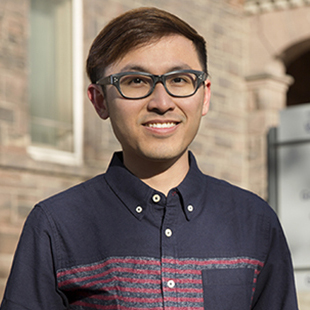Ting-Hin Ho

Ting-Hin Ho
Alumnus, JEP PhD Molecular Genetics
University of Hong Kong (lead) / University of Toronto (collaborator)
“The cultural diversity at U of T is notable and makes me feel very comfortable as an international student.”
During the final year of my undergraduate study at the University of Hong Kong (HKU), I was given an opportunity to do a research project in the department of Biochemistry, where I developed an interest in virology. After completing my master’s there, I began doctoral studies on a Joint Educational Placement (JEP) between HKU and the University of Toronto. My studies have been funded in part by two scholarships from Hong Kong, namely the Postgraduate Scholarship and Lee Wing Tat Medical Research Fund.
For my PhD, I am studying how the Epstein-Barr virus affects genome stability by manipulating its host’s DNA damage response. A reduction in genomic stability will result in mutations and chromosome rearrangements, which is usually associated with cancer development. Through this study, I am hoping to better understand how the Epstein-Barr virus can lead to cancers. I have always been interested in understanding the interaction between viruses and the human body. Also, some cancers associated with the Epstein-Barr virus are rare in most parts of the world but common in southern China, especially in Hong Kong and Guangzhou. Because of this, I really want to know more about this virus and the mechanism by which it stimulates cancer development.
I wanted to do a JEP because I believe working in a foreign laboratory, learning new research techniques and working with different people can boost my academic career. Through studying abroad, I also hoped to build up my network and engage with other cultures.
I chose HKU as the lead institution for my JEP since I was most familiar with this university and I have been working with my HKU supervisor for more than five years through different projects. I chose U of T because it is renowned for its high standard of research and I wanted the experience of being part of the U of T research team. The greatest asset of U of T is the knowledge-rich environment and the affiliation with top-class hospitals and research institutes.
There are always experts I can rely on whenever I encounter research questions. The cultural diversity at U of T is also notable, and it makes me feel very comfortable as an international student.
The greatest benefit of doing a JEP is the ability to incorporate different approaches to my study and gain the perspectives of different institutions. The greatest challenge is to balance the differences in the education system between the two institutions. The program requirements and expectations are very different at both universities, so my supervisors and I have to work hard to make sure everyone involved is satisfied.
My advice to prospective students is to expand your world: take a step out of the comfort zone and do not be afraid of trying something new. By working in an unfamiliar environment and meeting new people, you find out who you are truly capable of becoming.
